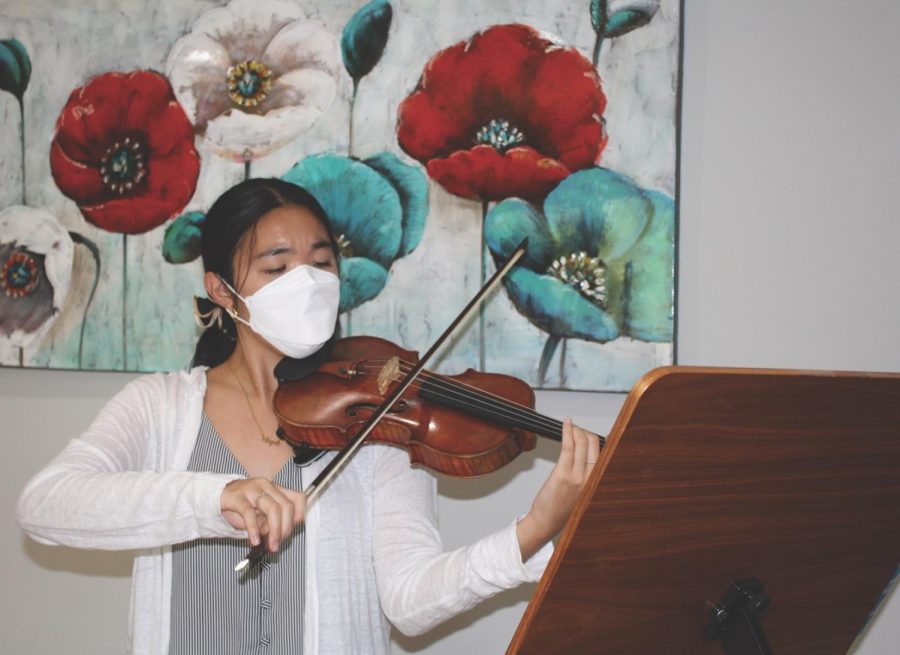Playing both student and musician
On the last day of her freshman year, senior Abby Park walked into her counselor’s office to finalize switching to a part-time schedule for sophomore year. As a part-time student, Park would go home before lunch to have more time to practice violin in the afternoon.
Park pursues her music commitments at the Music Institute of Chicago Academy, also known as the Academy. She has participated in the Academy since eighth grade. It meets on Saturdays from 9:15 a.m to 6 p.m., during which students participate in four class periods: music theory, chamber music, orchestra and enrichment.
According to Park, when she came home from mornings at school, she completed Academy-related assignments and practiced for both Academy performances and her solo pieces.
“It’s really hard to do [the Academy], at least in my opinion, when you’re doing school full-time,” said Park. “So I was like, ‘This is what I really want to do, and I’m willing to sacrifice my high school career for music.’”
James Setapen, director of the Academy, said in a phone interview that the Academy is difficult to get into and has high standards. The program is meant for highly talented pianists, violinists, violists and cellists.
“These 30 or so students … they’re the [top] one percent of the best performing high school musicians in the country,” Setapen said.
Park has received honors for her violin abilities including winning the Lisker Music Foundation Young Artists Scholarship Competition in November 2020. She also placed first at the Midwest National Chamber Music Competition, a competition for young chamber ensembles, in February 2020.
In the second half of Park’s junior year, she began to feel her limits as a violinist, making her question if music was the right path for her, Park said.
“I feel like music requires so much personal connection,” said Park. “Before the pandemic, I had been socializing so much. We had rehearsals, concerts, competitions, … but then when the pandemic hit, it was just me and the violin.”
Park withdrew from the Academy for the rest of her junior year and returned to school full-time.
Park’s mother, Sang Eun Lee, said in a video conference that she was at a loss for words when Park told her about this decision.
“When you have prepared together with your daughter most of her life thinking she will be a violinist, but all of the sudden she says this is not it, it feels as though someone punched you in the stomach.
“I could no longer picture her future in my mind,” Lee said.
For her senior year, Park decided to go back to both full-time school as well as the Academy.
“There are some times where I feel like, ‘Wow, this is really hard. I can’t believe I even decided to put all this work on myself,’ but I don’t really have any regrets,’’ Park said.


